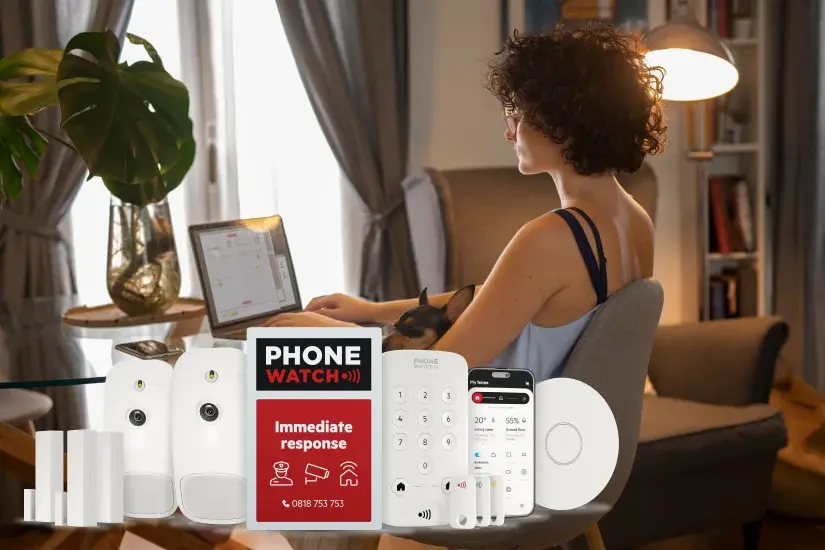
Home Office Security: 5 Remote Working Security Tips in 2024
The rise of remote work has made home offices a necessity for many professionals.
Why is home office security important?
While the flexibility and convenience of working from home are undeniable, it also presents unique security challenges. In this blog post, we'll explore some essential security tips to help you protect your home office and keep your sensitive data safe.
Data shows a lot of homes are burgled while the homeowner is there! So if you are busy on calls or engrossed in work, it's a good idea to keep doors and windows locked and even have your alarm, if you have one, on part arm. If you don't have a house alarm it might be something worth considering
Remote working security risks
Your home office is a digital workspace where you likely handle sensitive information, such as client data, financial records, and personal details. A breach in your home office security could have serious consequences, both personally and professionally.
5 Remote working security tips
-
Protect your physical workspace:
- Secure your equipment: Keep your computer, laptop, and other devices out of sight when not in use. If in a windowed room, ensure you have window contact & shock detectors. If not, consider using camera motion detectors.
- Lock your door: When you step away from your home office, ensure your door is locked to prevent unauthorized access.
- Be mindful of visitors: Be cautious about who you allow into your home office, especially if you are handling sensitive information, by using our Wireless Video Doorbell Camera
-
Consider a home office security system:
- Install a monitored security system. A monitored home security system can deter intruders and alert you to potential threats. This can also ensure if you leave your home at any time, Phonewatch has you covered, with 24/7 monitoring, Phonewatch alerts you, and if need be, the Gardaí, in 15 seconds.
- Use an indoor security camera. An indoor security camera can monitor your home office and provide evidence if a security breach occurs. This also allows you to have further confirmation of what was damaged and/or stolen, and allows PhoneWatch to identify and track the perpatrator.
- Invest in a smart plug. A smart plug can protect your electronics from power surges that can damage your devices and data. This can also be used to switch on or off any device in your home office. The Phonewatch smart plug can be controlled via the Phonewatch App
-
Create a secure network:
- Use a strong Wi-Fi password: Avoid easy-to-guess passwords and opt for a combination of upper and lowercase letters, numbers, and symbols.
- Consider a VPN: A Virtual Private Network (VPN) encrypts your internet traffic, making it more difficult for hackers to intercept your data.
- Keep your router firmware updated: Regularly check for and install software updates for your router to address security vulnerabilities.
-
Protect your digital devices:
- Use strong passwords: Apply unique, complex passwords for your computer, smartphone, and other devices.
- Enable two-factor authentication: Add an extra layer of security by requiring a code sent to your phone or email in addition to your password.
- Keep your software updated: Ensure your operating system, antivirus software, and other applications are up-to-date with the latest security patches.
-
Secure your data:
- Back up your data regularly: Store backups on an external hard drive or cloud storage service to protect against data loss.
- Use encryption: Encrypt sensitive files to make them unreadable to unauthorized individuals.
- Be cautious of phishing attempts: Be wary of suspicious emails, links, or attachments that may contain malware or attempt to trick you into revealing personal information.
How can I make my home office safer?
By following these security tips, you can significantly reduce the risk of a security breach in your home office and protect your sensitive data. Remember, staying informed about the latest security threats and best practices is essential for maintaining a secure remote work environment.
In addition to securing your home office, it's essential to protect the entire home from potential burglary. For comprehensive tips on safeguarding your home, check out our article on how to protect your home from burglary.
